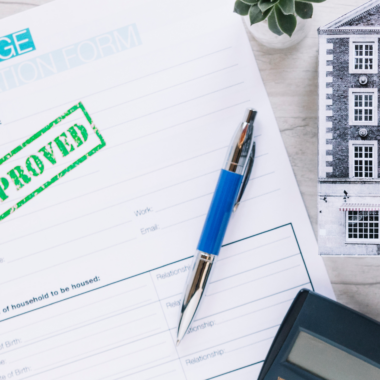Learn the basics of charge off accounts and what you should do if one appears on your credit report. Get tips about how to repair your credit from our experts at Credit Fitness Financial Group.
If you’ve recently pulled your credit report, you may have noticed that one of your accounts is listed as “charged off.” This can be a confusing term, especially if you’re unfamiliar with credit reporting and the effect it can have on your overall credit score. Let’s break down what a charge-off account is and how it impacts your credit score. By fully understanding what a charge-off account is, you will begin to understand why we are the best credit repair company in Oklahoma. Additionally you will see why we are the number one credit repair company others rely on to help remove inaccurate information, erroneous, and outdated information from credit reports to help improve the overall health of their credit.
What is a Charge-Off Account?
A charge-off account occurs when a creditor closes an unpaid debt due to nonpayment by the borrower. It does not mean that the debt has been forgiven or erased; rather, the creditor simply no longer expects to receive payment for the balance owed. The account remains open until the collection period expires (usually seven years). During this time, creditors are allowed to report the debt as charged off to all three major credit bureaus (Experian, Equifax, and TransUnion).
How Does It Impact My Credit Score?
Charge-offs are considered negative items on your credit report and can have a direct impact on your FICO score. The longer an unpaid debt sits without payment, the more damage it will do to your score over time. It’s important to note that even if you pay off a charged-off debt in full after it has been reported as such, it will still remain on your credit report for up to seven years from the date of delinquency (the date of first missed payment). Depending on what your credit score was before the charge-off was reported, you could see anywhere from a 20 point drop all the way up to 50 points or more. This means that if you had excellent credit before the charge-off, you could now find yourself in a position where lenders may not be willing to lend you money due to your decreased score. That being said, there are specific strategies to provide guidance regarding how to properly pay off old debts, to help improve your score by showing lenders that you are capable of managing existing obligations responsibly.
How should I handle a charge-off?
The best way to handle a charge-off is to contact the original creditor and try and work out some type of payment plan with them. This may not always be possible, however, so if this is not an option then you should consider talking with a financial advisor or debt counselor who can help you come up with strategies for handling the debt in ways that don’t damage your finances further. Additionally, if you are able to pay off the debt in full then this can help improve your credit score significantly over time as long as there are no other negative items on your report.
The last thing you want is for things like late payments or defaults to start appearing alongside the charge-off because this will only hurt your credit score further and make it even harder for lenders to trust that you are financially responsible.
If you see that one of your accounts is listed as “charged off” on your credit report, don’t panic! While this could have an impact on your overall FICO score, there are ways you can work towards improving it again over time. Taking steps like paying down existing debts and maintaining good spending habits will help show creditors that you are capable of managing money responsibly and make them more likely to extend new forms of credit in the future. Understanding how charge-offs work and how they affect your credit score is key to taking control of your financial health!
To arrange a call with our Credit Specialist, please visit our website at www.creditfitnessgroup.com or email us at info@creditfitnessgroup.com and one of our representatives will be in touch to discuss your options further. We look forward to helping you get back on the path towards financial freedom! Thank you for choosing Credit Fitness Financial Group. We are here for you!






